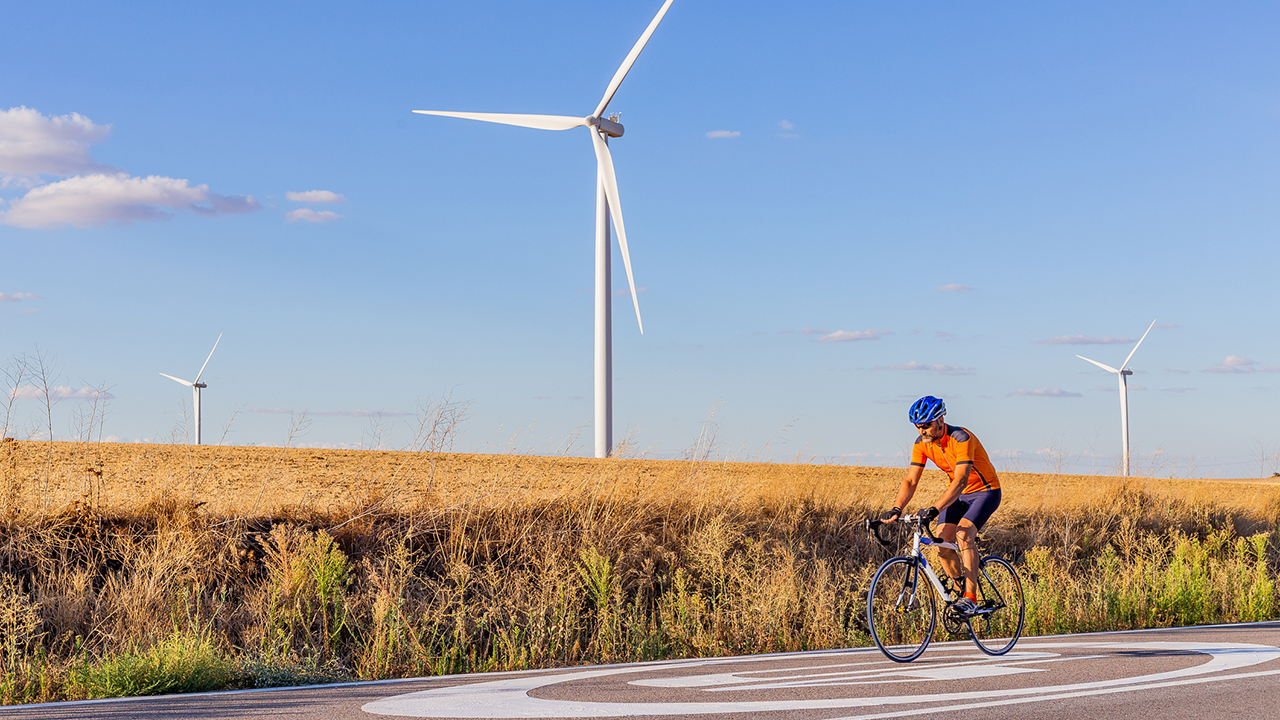Green agenda and sustainability front and centre at active-net
Industry leaders have come together to call on the sport and physical activity sector to get on board the green agenda at the active-net national conference.
The UK’s strategy sets out policies and proposals for decarbonising all sectors of the economy to meet the UK’s net-zero target by 2050, and sport and physical activity is intended to play a key role in achieving that.
Addressing topics ranging from net zero to sustainability were Huw Edwards, CEO ukactive; Jennifer Huygen, head of policy and strategic partnerships at Community Leisure UK; Tara Dillon, CEO CIMSPA; and Mark Tweedie, managing director at Brimhams Active.
Edwards spoke about the difficulties the sector has experienced recently and the “existential impact of the pandemic where huge amounts of reserves and the financial pressure on the sector was self-evident”.
“It’s a very challenging environment to look at this context, and the real question is how do we start that journey collectively and evolve towards an end destination whilst also managing the fragility of this sector in this current environment,” he said.
CIMSPA’s Dillon acknowledged that the sector is “a big consumer of energy and it emits a huge amount of CO2 [carbon dioxide, which is a key driver in climate change]”, noting that the cost of energy is going “up and up.”
She welcomed the fact that government has set aside £40m to help the industry [funding for energy efficiency and decarbonisation] and said that if the sector pulls together, around £880m in savings could be realised.
“A business case for sustainability, both economically and green, is the sensible thing to do,” said the CIMSPA CEO. “We need to adopt a crisis mentality to the green agenda because waiting isn’t going to work, it won’t pay to be late to the green transition. We’ve been through a very torrid few years, and we need a bit of stabilisation.”
Tweedie played a sombre note detailing how colleagues across the country face closing facilities with some “really good organisations” at risk of insolvency.
He hopes real transformational change can occur within organisations, he said, adding that the cost of energy could be “a real driver for change” and not just incrementally.
“In this utility crisis and energy costs no-one is talking about closing hospitals because they use too much energy, but we’re talking about leisure centres and swimming pools,” Tweedie opined.
“My argument is if we were firmly positioned in the health and social care supply chain, we would see leisure centres as more of an essential service and we wouldn’t be having this conversation.”
Huygens added that limiting climate change to 1.5c degrees “is not some magical number we are working towards”. If that target is reached it is more likely to avoid “dangerous tipping points” and catastrophe, she said.
“There is time to avoid the worst of climate change. It’s never too late to start because every fraction of a degree matters,” she said.
Summing up, Edwards said the delegates should take three things from his organisation and the wider conversation: to survive from the pandemic through tricky energy crisis waters, creating the right marketplace to seek best advice on energy efficiency measures, and a long-term renewal of capital investment and criteria for it.


